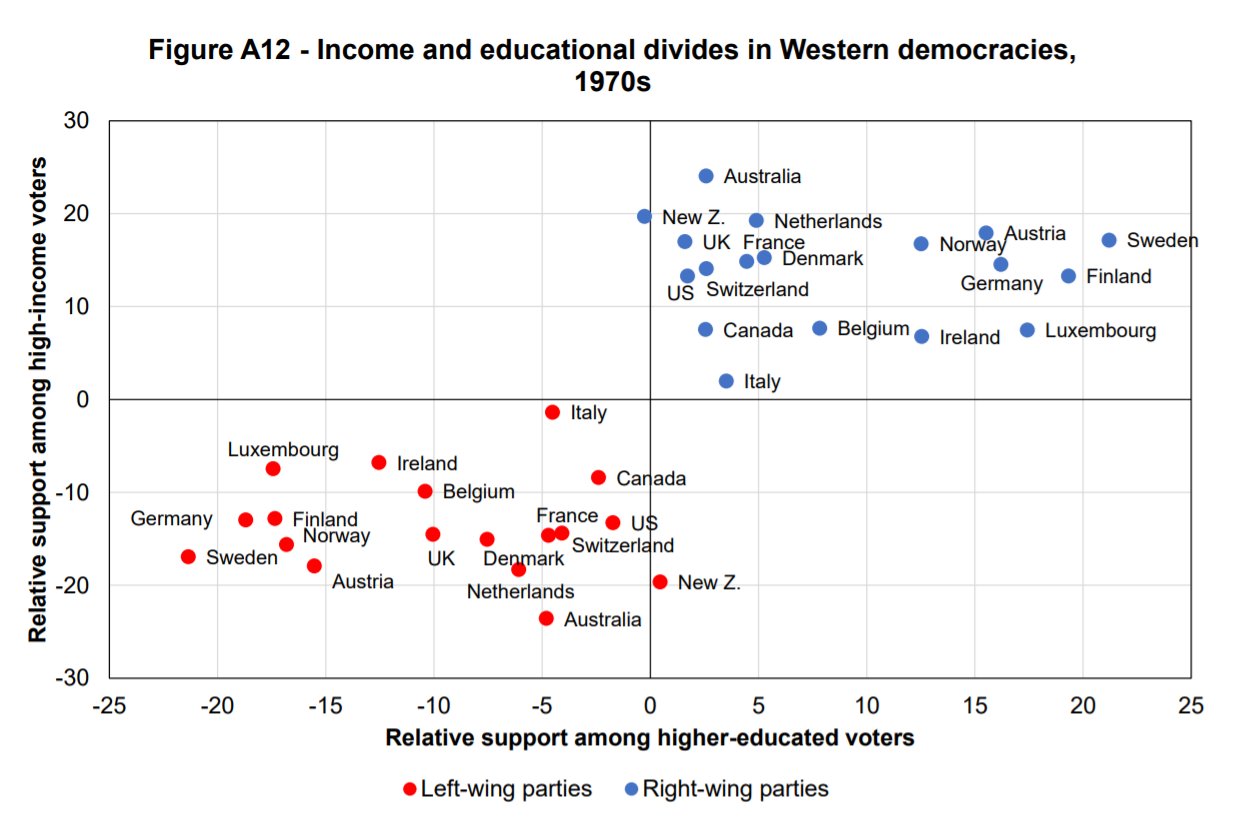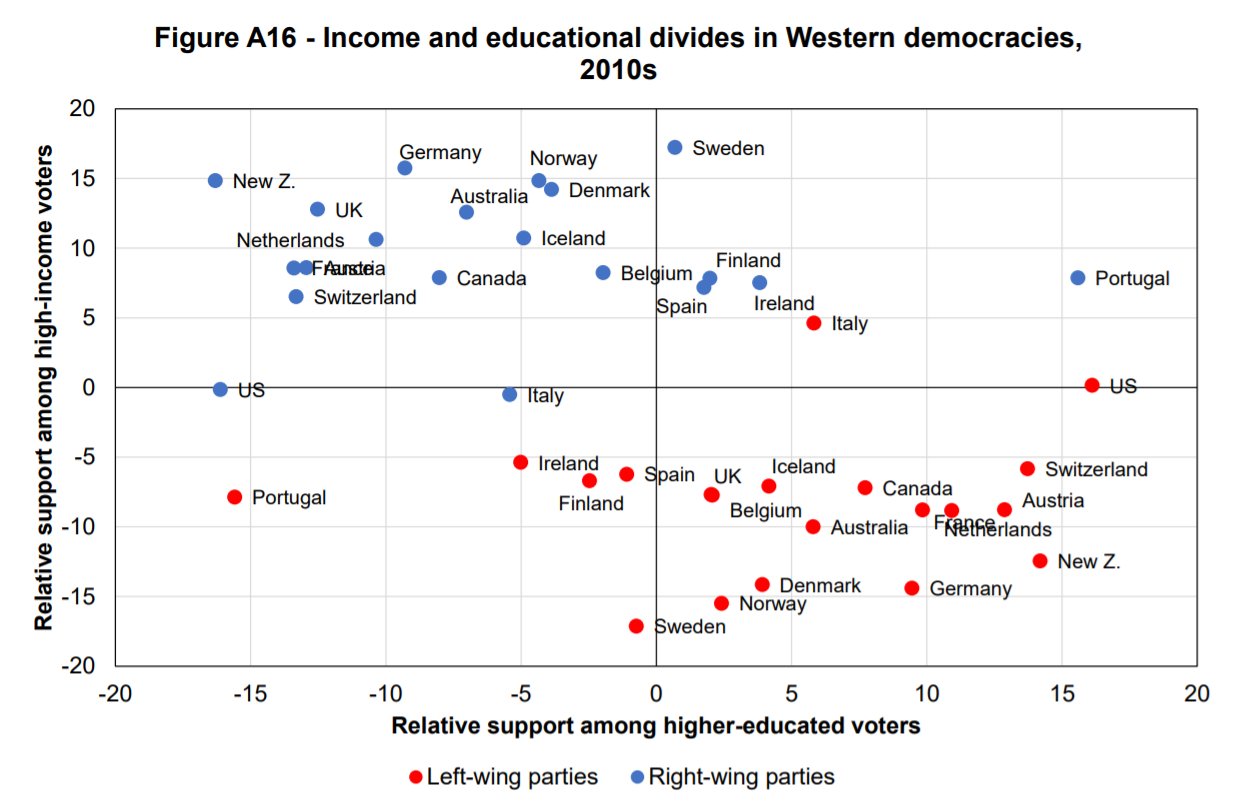Want to understand the last fifty years of democratic politics? Then read this new paper by Amory Gethin, Clara Martínez-Toledano and Thomas Piketty.
It investigates a familiar hypothesis, which is that the most ‘highly’ educated voters are increasingly trending Left, with a corresponding shift of non-graduates to the parties of the Right.
The remarkable thing about the research is just how far it goes in showing that this shift is not only true, but overwhelmingly more important than any other comparable development in voter preferences.
For a start, the researchers use data drawn from 21 western nations — enabling them to demonstrate that the phenomena they describe are truly international. In a paper bursting with charts, two in particular stand out.
The first shows the political divides of the 1970s — when, in almost every country, the parties of Right attracted higher levels of support from voters with the highest levels of income and education (with the parties of the Left doing the diametrical opposite).

Fast forward to the present day (or at least to the 2010s) and a remarkable shift has taken place. Though the parties of the Right continue to have an advantage among the voters with the highest incomes, it is the parties of the Left that now attract more support among voters with the highest level of education:

These charts have been doing the rounds on political Twitter — no doubt, because they tell such a dramatic story. It is worth pointing out a few details though.
Firstly, for both income and education levels, these charts are comparing the top 10% of the population versus everyone else. Thus these shifts are taking place among the elite and aren’t just a side-effect of expanding higher education to other parts of the population.
Secondly, it’s important not to misinterpret the research as showing no shift towards the Right among poorer voters and no shift away from the Right among the richest ones. Graduates tend to earn more than non-graduates and therefore any move away from the Right in the graduate population will be reflected in the voting preferences of higher earners too. However, the researchers statistically control for this “mechanical” factor. As they say themselves, removing this control “displays a stronger decline in the influence of income on the vote.”
Thirdly, the shift shown by this research hasn’t occurred all-of-a-sudden. The charts above are for the 1970s and 2010s, but the paper also has charts for the intervening decades. Taken together, these show that the great shift has been underway across that entire period. Indeed, it’s truly extraordinary that it wasn’t spotted sooner.
Looking back, we can see that the Tories before Brexit were wasting their time trying to appeal to young graduate professionals. In reality, a very different set of voters were waiting to drop into their lap — as Boris Johnson was to prove in 2019 and again this year.
I don’t want to say that people like David Cameron and George Osborne were on the ‘wrong side of history’… but then again, they were on the wrong side of history.










Join the discussion
Join like minded readers that support our journalism by becoming a paid subscriber
To join the discussion in the comments, become a paid subscriber.
Join like minded readers that support our journalism, read unlimited articles and enjoy other subscriber-only benefits.
Subscribe